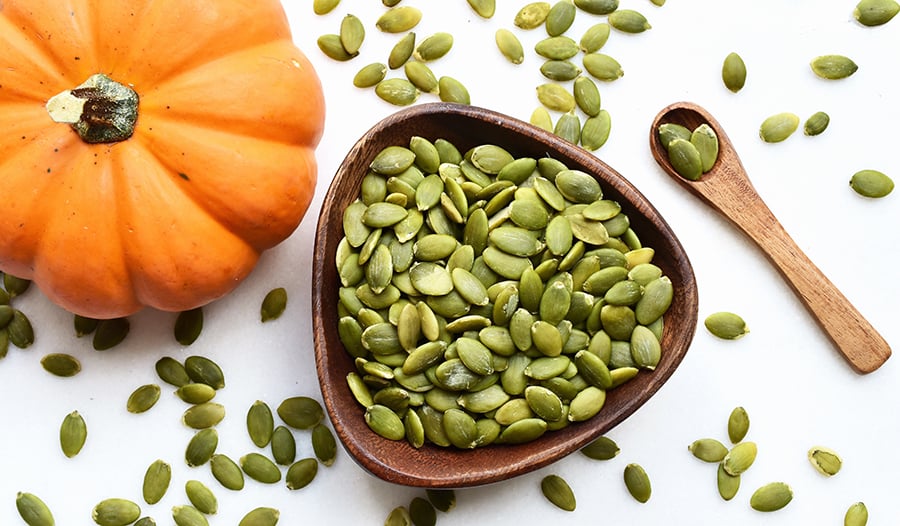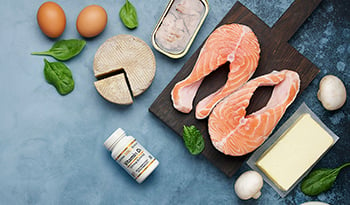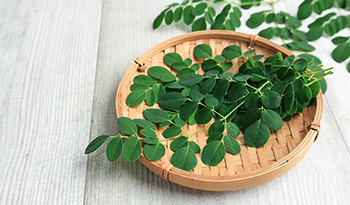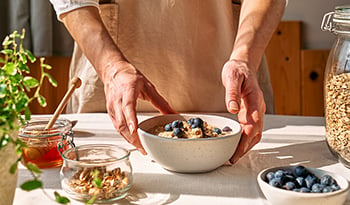Protein Biji Labu: Faedah Makanan Super Ini

Labu adalah simbol musim luruh yang terkenal. Dengan warna oren terang perayaan mereka, labu digunakan untuk membuat kegemaran percutian seperti pai labu, latte rempah labu, dan gulungan labu. Walaupun anda mungkin paling biasa menggunakan daging oren suci dalam resipi, biji labu adalah makanan super berkhasiat yang sangat sesuai untuk makanan ringan, membuat protein dan minyak biji labu, atau sebagai topping rangup untuk hidangan kegemaran anda sepanjang tahun.
Apakah Protein Biji Labu?
Protein biji labu ialah protein berasaskan tumbuhan yang penuh dengan nutrien yang diperbuat daripada biji labu yang dikisar halus. Seperti kebanyakan kacang dan bijilain , biji labu penuh dengan manfaat kesihatan dan nutrien. Mereka kaya dengan protein dan vitamin dan mineral seperti besi, magnesium, dan zink.
Satu hidangan protein biji labu juga boleh meningkatkan pengambilan serat, menambah 14% daripada nilai harian setiap hidangan. Mudah ditambahkan ke resipi seperti smoothie, oat, dan makanan panggang untuk meningkatkan nutrien.
Pemakanan Protein Biji Labu
Biji labu dan pepitas adalah dua jenis biji labu yang digunakan secara berganti-tetapi ia agak berbeza. Beberapa ciri terkenal membezakannya, walaupun kedua-duanya berasal dari labu.
Biji Labu
Biji labu adalah biji putih utuh. Ini adalah jenis benih yang anda dapati apabila anda mengukir labu untuk Halloween. Kerana biji labu masih mempunyai kulit luar, ia mesti dipanggang dan disediakan sebelum makan. Tanpa memanggang, biji labu terlalu sukar untuk dimakan.
Terima kasih kepada tahap protein yang tinggi, biji labu sangat dicari untuk membuat protein biji labu. Setelah benih dituai, mereka dibasuh, dikeringkan, dan dipanggang. Setelah dipanggang, ia diproses dengan penggilingan atau mencampurkan untuk menghasilkan serbuk protein padat nutrien.
Membuat protein biji labu di rumah juga agak mudah. Apa yang anda perlukan ialah pengisar berkelajuan tinggi dan biji labu. Masukkan biji labu ke dalam pengisar dan kisar pada suhu tinggi, berhenti sekerap pengisar anda diperlukan. Setelah biji labu mencapai konsistensi serbuk halus, anda telah membuat serbuk protein anda sendiri!
Nota: pengadun terlalu lama akan menjadikan biji labu menjadi mentega biji labu, yang mungkin lazat tetapi tidak betul-betul seperti yang anda cari dalam resipi cepat di rumah ini.
Pepitas
Pepitas ialah biji labu hijau kecil yang secara semula jadi bebas cengkerang dan hanya terdapat dalam beberapa jenis labu. Tidak seperti biji labu, pepitas tidak perlu disediakan dan boleh dimakan mentah.
Biji labu dan pepitas sering digunakan secara berganti-tetapi anda sentiasa boleh mengetahui perbezaannya dengan melihat warna.
Biji labu dan pepitas mengandungi nutrien yang serupa, termasuk vitamin, mineral, dan lemak sihat. Satu hidangan protein biji labu mengandungi:
- Protein: 18 gram
- Serat: 4 gram
- Besi: 35% daripada nilai harian besi untuk membantu menggerakkan oksigen di sekitar badan
- Magnesium: 80% daripada nilai harian magnesium untuk fungsi otot dan saraf dan untuk menjaga tulang kuat
- Zink: 45% daripada nilai harian zink membantu dalam menyembuhkan luka dan menyokong sistem imun
- Lemak tak tepu: 4 gram lemak sihat setiap hidangan boleh membantu meningkatkan tahap kolesterol dan menurunkan keradangan
- Fitosterol: sebatian ini yang terdapat dalam makanan berasaskan tumbuhan boleh membantu meningkatkan kesihatan jantung dan mengurangkan keradangan
Faedah Protein Biji Labu
Biji labu mungkin kecil, tetapi ia mempunyai manfaat nutrien yang besar. Protein biji labu adalah sumber antioksidan yang sangat baik dan boleh meningkatkan kadar gula darah, kesihatan jantung, kesihatan pundi kencing dan prostat, dan juga mood . Antioksidan dalam protein biji labu bahkan dapat membantu melindungi daripada penyakit kronik tertentu.
Dikemas dengan Antioksidan
Antioksidan membantu menjaga sel sihat dan mencegah kerosakan daripada radikal bebas, atau molekul yang tidak stabil. Protein biji labu mengandungi dua antioksidan kuat: flavonoid dan asid fenolik.
Flavonoid adalah sebatian antioksidan yang terdapat secara semula jadi yang terdapat dalam makanan berasaskan tumbuhan seperti buah-buahan, sayur-sayuran, kacang, kekacang, dan biji seperti biji labu. Diet tinggi flavonoid dikaitkan dengan risiko penyakit yang lebih rendah seperti penyakit kardiovaskular.
Flavonoid juga boleh membantu meningkatkan fungsi ingatan dan kognitif. Makan diet yang penuh dengan makanan kaya flavonoid seperti biji labu sekarang boleh membantu melindungi ingatan dan fungsi kognitif seiring bertambahnya usia.
Protein biji labu juga kaya dengan asid fenolik, subkategori polifenol. Polifenol adalah salah satu kumpulan antioksidan yang paling biasa dan paling mudah dijumpai dalam makanan seperti beri, rempah, zaitun, teh hitam, kacang, dan biji, termasuk biji labu. Penyelidikan menunjukkan diet yang kaya dengan antioksidan seperti asid fenolik dengan ketara mengurangkan risiko penyakit seperti diabetes dan penyakit kardiovaskular.
Boleh Mengekalkan Tahap Gula Darah
Protein biji labu bukan sekadar protein—ia juga mengandungi serat dan lemak sihat. Trio ini adalah pilihan berkhasiat untuk mengekalkan paras gula darah yang stabil semasa makan dan makanan ringan yang sihat.
Makan protein bersama-sama dengan karbohidrat membantu melambatkan pemecahan glukosa dan pembebasan glukosa ke dalam aliran darah. Ini membantu mengekalkan paras gula darah yang stabil, mengurangkan kemungkinan lonjakan gula darah.
Protein biji labu adalah sumber seratyang baik, menyediakan 4 gram setiap hidangan. Sebagai karbohidrat yang tidak dapat dicerna, serat bergerak di sepanjang saluran pencernaan seperti penyapu, membantu menjaga semuanya bersih dan kemas. Ia juga membantu melambatkan pencernaan glukosa, menyokong keseimbangan gula darah. Pengambilan serat yang mencukupi juga bermanfaat untuk kesihatan jantung dan pengurusan berat badan.
Boleh Meningkatkan Kesihatan Jantung
Kolesterol tinggi adalah salah satu masalah kesihatan jantung yang paling biasa di Amerika Syarikat. Makan makanan serat tinggi, seperti protein biji labu, boleh membantu menurunkan kolesterol. Serat mengikat kolesterol dalam usus kecil, menghalang tubuh daripada menggunakannya. Kolesterol dikeluarkan dari badan bersama dengan serat.
Asid linoleik, asid lemak omega-6 yang terdapat dalam makanan berasaskan tumbuhan seperti biji labu, juga boleh membantu meningkatkan kesihatan jantung. Kajian 2020 dalam Nutrien mendapati bahawa menggantikan lemak tepu dengan asid linoleik dikaitkan dengan penurunan kadar kolesterol total dan dapat membantu mengurangkan tahap trigliserida.
Biji labu juga menyediakan kalium, mineral yang boleh membantu menurunkan tekanan darah dan mengurangkan risiko penyakit jantung dan strok. Satu hidangan biji labu mengandungi 10% daripada nilai harian kalium.
Meningkatkan Kesihatan Prostat dan Pundi Kundi Kundi
Minyak yang diekstrak dari biji labu, yang dikenali sebagai minyak biji labu, boleh membantu menyokong pundi kencing dan kesihatan prostat dan memperbaiki keadaan berkaitan pundi kencing.
Dalam kajian terhadap 45 orang dengan pundi kencing yang terlalu aktif, mereka yang mengambil 10 gram minyak biji labu setiap hari selama 12 minggu mempunyai kekerapan pundi kencing yang kurang. Satu lagi kajian lama yang mengkaji kesan biji labu terhadap kesihatan pundi kencing mendapati bahawa tahap fosforus yang tinggi dalam biji labu dapat membantu mengurangkan risiko batu pundi kencing.
Kajian lain melihat kesan biji labu terhadap kesihatan prostat pada 1.431 lelaki dengan gejala prostat yang diperbesar. Ia mendapati bahawa mereka yang mengambil 10 gram biji labu setiap hari selama 12 bulan mengalami peningkatan yang ketara dalam gejala mereka berbanding mereka yang mengambil plasebo.
Boleh Meningkatkan Mood dan Kesihatan Mental
Sesetengah makanan, termasuk biji labu, mempunyai sifat yang meningkatkan mood dengan meningkatkan tahap serotonin di otak.
Biji labu adalah sumber asid amino tryptophan—hidangan biji labu 1 ons memberikan 0.16 gram. Tryptophan telah terbukti meningkatkan tahap otak serotonin kimia yang baik dalam badan. Satu kajian dalam Journal of Psychiatry and Neuroscience melaporkan bukti yang menjanjikan bahawa tryptophan mungkin mempunyai kualiti antidepresan bagi mereka yang mengalami kemurungan ringan hingga sederhana dan mudah menjengkelkan orang.
Jika anda bergelut dengan kemurungan atau mudah marah, hubungi pakar kesihatan mental atau penyedia penjagaan primer anda.
Memanfaatkan Kekuatan Protein Biji Labu
Protein biji labu adalah pilihan protein berasaskan tumbuhan yang sangat baik yang diperbuat daripada biji labu tanah. Ia menyediakan serat, lemak sihat, antioksidan, dan nutrien lain, bersama dengan protein. Dengan manfaat kesihatan mulai dari paras gula darah yang lebih baik dan kesihatan jantung hingga sokongan untuk kesihatan pundi kencing dan prostat dan mood yang lebih baik, cuba tambahkan protein biji labu ke rutin harian anda yang sihat sepanjang tahun.
Rujukan:
- Serbuk Protein Biji Labu Organik. Pusat Data Makanan. Diakses pada 8 April 2024.
- Panche AN, Diwan AD, Chandra SR. Flavonoid: gambaran keseluruhan. J Nutr Science 2016; 5:1-15.
- Cheatham CL, Nieman DC, Neilson AP, Lila MA. Meningkatkan Kesan Kognitif Flavonoid Dengan Aktiviti Fizikal: Adakah Terdapat Kes untuk Mikrobioma Usus? Neurosci Depan. 2022; 16.
- Kumar N, Goel N. Asid fenolik: Molekul serba boleh semula jadi dengan aplikasi terapeutik yang menjanjikan. Laporan Bioteknologi. 2019; 24.
- Richter D, Abarzua S, Chrobak M, et al. Kesan ekstrak phytoestrogen yang diasingkan daripada biji labu pada pengeluaran estradiol dan ekspresi ER/PR dalam kanser payudara dan sel tumor trofoblast. Kanser Nutr 2013; 65 (5): 739-745.
- Tabrez S, Khan AU, Hoque M, Suhail M, Khan MI, Zughaibi TA. Menyiasat keberkesanan antikanker MGonP yang disintesis biogenik: Analisis in vitro. Chem Depan 2022; 10.
- Froyen E, Burns-Whitmore B. Kesan Penggunaan Asid Linoleik pada Penanda Risiko Lipid untuk Penyakit Kardiovaskular pada Individu Sihat: Kajian Semakan Percubaan Intervensi Manusia. Nutrien 2020; 12 (8): 1-19.
- Sun Y, Byon CH, Yang Y, et al. Kalium diet mengawal kalsifikasi vaskular dan kekakuan arteri. Wawasan JCI 2017; 2 (19).
- Nishimura M, Ohkawara T, Sato H, Takeda H, Nishihira J. Minyak Biji Labu yang Diekstrak Dari Cucurbita maxima Meningkatkan Gangguan Kencing pada Pundi Kencing Manusia yang terlalu aktif. J Tradit Complemen Med. 2014; 4 (1) :72.
- Suphakarn VS, Yarnnon C, Ngunboonsri P. Kesan biji labu pada oksalcrystalluria dan komposisi kencing kanak-kanak di kawasan hiperendemik. Di J Clin Nutr. 1987; 45 (1): 115-121.
- Vahlensieck W, Theurer C, Pfitzer E, Patz B, Banik N, Engelmann U. Kesan biji labu pada lelaki dengan gejala saluran kencing bawah akibat hiperplasia prostat jinak dalam kajian GRANU terkawal plasebo selama satu tahun, rawak, terkawal plasebo. Urol Int. 2015; 94 (3): 286-295.
- SN muda. Bagaimana untuk meningkatkan serotonin dalam otak manusia tanpa ubat. J Psikiatri Neurosci. 2007 Nov; 32 (6): 394-9. PMID: 18043762; PMCID: PMC2077351.
PENAFIAN:Hab Kesejahteraan ini tidak berhasrat untuk memberikan diagnosis...
















































































 Kandungan
Kandungan















